I am not the only one with a Gen 2 Prius getting 50 miles per gallon. If your Prius is still performing above the EPA rating, this article probably is not for you. If you are not getting the mileage, you think you should stay tuned and read about what I do.
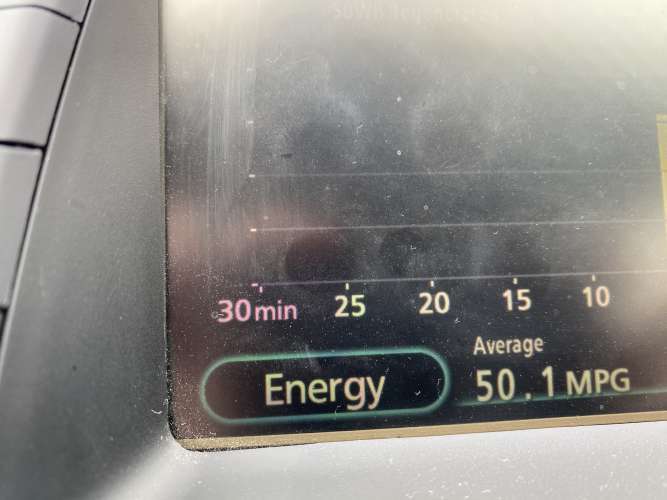
The things I do are not magic but rather things all Prius owners (and regular car owners) should be doing if you want to take care of the investment you have in your driveway.
As I share these things with you, keep in mind that this is my experience with my Prius. I am also fortunate enough also to have been in the automotive industry for 15 years. I understand cars, maintenance, and what it takes to keep them running at peak performance.
I share my information because I want to help others know that it is not rocket science but basic, simple things that keep their cars running well. I have seen domestic vehicles like Ford, Chrysler, and GM go for hundreds of thousands of miles. Domestics typically have higher problem rates when compared to a company like Toyota, but the fact remains, it is possible.
Anyway, here are my secrets to getting your Prius back into tip-top running condition and hopefully scoring that 50 miles per gallon that we all want to have.
Start With The Base-ics
A place to start is what shape the car is in? I am talking specifically about the body having major dents, are there missing pieces of trim or missing "beauty rings" on the wheels. Believe it or not, all of these things matter. While seemingly insignificant, each of these items is by itself; collectively, they matter a lot.
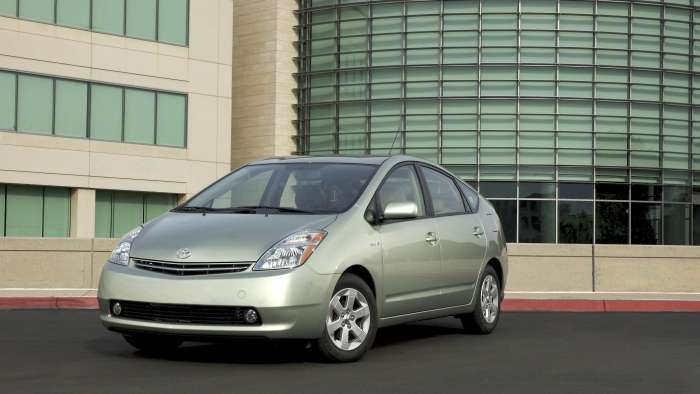
Prius is designed to have an ultra-low coefficient of drag, meaning that it needs to glide through the air with as little resistance as possible. As engineers wind-tunnel tested Prius, they added things like plastic trim to the wheels to help airflow over the car better.
I can already hear someone say that this is total BS, which is fine; you can think that. Here is how I know that all these little pieces make a difference. I have now owned 9 Prius and many Gen 2. Each Prius brought me a unique challenge, and each one had varying levels of OE trim.
After driving each one of these cars for hundreds of miles, I found that the ones that had less trim would always get less fuel economy regardless of the other things I will tell you. What it comes down to is those things help you over time. Most of us who own Prius think we want it forever, at least we plan to.
If you are that person, I will tell you that having your trim fitting correctly and in the proper place will cost you some MPG immediately and more over time. Replacement parts are available from your dealer.
Good OE Battery
There is a reason that the title of this section has an OE battery in it. While I do believe that you can get a good refurbished battery from other sources, you cannot beat a new battery. My current Prius that I have has a fresh Toyota battery in it.
I have spent a lot of time learning about battery reconditioning and repair. I have rebuilt many batteries with excellent performance. I believe there is a place for battery repair globally; however, I now know that the OE battery is the best possible option.
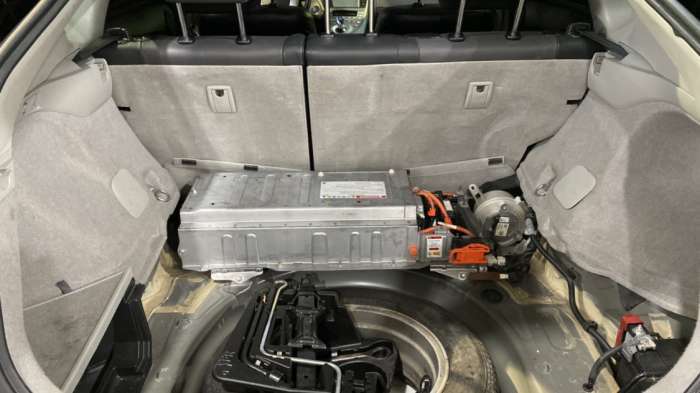
When I first started driving this Prius, it came with a reconditioned battery. The battery did work and kept the lights off in the car, but it was not great.
After a Nickel Metal Battery ages, it loses capacity, or the ability to store energy. The idea behind reconditioning is that it restores the battery to a "like-new" condition. While reconditioning does restore capacity, it does not always wholly restore the battery to new.
Dendrite formation is the root cause of lost battery capacity in our Prius (and other hybrid batteries). Everything in this world has a shelf-life, and hybrid batteries are no different.
Getting a new OE battery is more expensive; I get that. If you are one of those who will drive it for another 12 years as I will, it is worth the money. Plus, if you apply the theory of reconditioning the battery early enough, you will never have to worry again about buying a new one.
Reconditioning is most effective, around 50 to 60 thousand miles or about 5 to 6 years. At this period in the battery's lifecycle, it is coming out of the first phase of peak performance. Once it heads into the second stage, we see power loss and a drop in fuel economy.
Ask me how I know. I have been studying and testing these things for nearly three years now with over 12 hybrids and 9 of them being Prius. I have spoken with many different industry leaders in battery repair and reconditioning.
Through all this research, you need to ask yourself one question. Do I want my Prius for ten years or less than that? If you can only see yourself having your Prius for another year or so (things change), then get a refurbed battery or fix it yourself. If you know you want to keep it for longer, go with an OE battery.
My Prius is rocking a newer OE battery, and I can tell a massive difference between the refurb and this new one.
Fluid Maintenance
I know of zero people that want to have an engine seize, a transmission break, or a braking system fails. I also know that changing your fluids in these systems can be expensive.
I look at it like this. At any time, I know I could get into my Prius and drive it around across the continent or further. Why? I am not worried about failure because I take care of my car. A great example of this is Gen 1 Prius. Those owners who did not change their transmission fluid more than likely had a transmission failure. Those who did change their transmission fluid never experienced it.
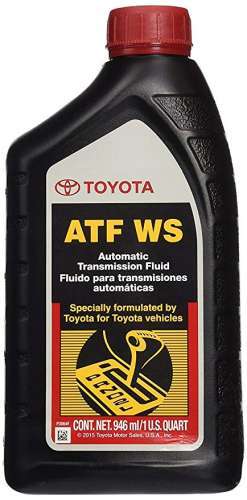
The problem was that the fluid would break down and cause a high voltage short to the motor/generator and burn up the windings. Fresh juice would keep the moisture away from the critical components, and no break down would occur.
Want to talk about braking system failure? Ok, brake fluid is hygroscopic, meaning that it can absorb moisture from the air. Over time, water seeps in and will cause braking system problems, including failure. Brake fluid does break down also. When this occurs, dirt can get trapped into small ports and seals inside the system.
The braking system has very tight tolerances, which means dirt can stop it from operating. Regular fluid changes every 60 to 90k will help keep your system from failing while you own the vehicle.
Engine and inverter coolant are also fluids critical. The coolant breakdown can lead to things like cavitation, causing leaks and other higher-cost items to fix. Change the coolant for the health of your system. My inverter and engine system are going to get changed here very soon because Prius life.
Watch Your Tires
Tires are something that I repeatedly battle with people over. Yes, your Prius came from the factory with low rolling resistance tires. Yes, it would be best to replace them when worn out with another set of LRR tires. The thing is this, money.
Most consumers do not understand what the significant differences are between tire grades. By grades, I mean entry-level, mid-level, and upper level. Most people want to spend as little as possible on something that keeps them safe and more on things that help them feel happy at that moment. Most people only know tires are black, round and that some cost more than others.
So the question is, can you still achieve high fuel economy with cheap tires? Well, so far, I have. My tires need a replacement, and I do have a set of tires that I will put on for the wintertime to buy new ones in the spring.
I will not be buying cheap tires, though. I worked for a tire store for about ten years. I know how tires work, and I understand why I will buy more expensive tires. Road noise, the longevity of wear for miles driven, and safety are why. I also know that I can maximize my fuel economy by doing a couple of things.
First, inflation is critical. When the EPA gave Prius the fuel economy rating, those numbers are based on set tire pressure. The manufacturer's tire pressure is to ensure you have maximum grip, low road-noise, and a comfortable ride. The "footprint" is best at the OE tire pressure, and you will also not see strange wear patterns (as long as the car is aligned correctly).
Inflating the tires excessively is not suitable for wear and safety. Too much pressure and you will have a wear pattern in the center of your tires while also losing significant grip on the road. But the right adjustment of air pressure can help reduce the drag on the road from your tires, thus boosting your fuel economy.
I will tell you that I cannot endorse you changing your air pressure. My change in air pressure was simply for research, and as a professional in this industry, I use that data to draw out conclusions on what can be done to help boost fuel economy.
Your car, your choice. Keep that in mind—one last thing. My wheels are OE stock 15" with the trim rings on them. These rings are designed to minimize drag. Changing your wheel size and design will have consequences.
Driving Habits
We all know that one person that owns a Prius and says the get like 25 mpg. Then they take a Snapchat video doing like 120mph. Some people have not such great driving habits. I would suggest that before you condemn your Prius being at fault, try the following tips to see if your MPG increases.
Speed. Obviously, speed is going to play an essential factor here. If you are constantly accelerating and driving your Prius hard, you will see the fuel will get used more rapidly. Since the dawn of the automobile, this has always been the case. If speed increases, you will pay for it in fuel costs.
Hypermiling. If you can coast more, you will see your fuel economy rise. Basic science will tell you that. The opposite of going fast is slowing down. I only use the hypermiling technique when I know that it will not slow down anyone behind me. If you can coast for more extended periods and more often, you will store more energy in the battery, which will allow for more EV use.
Pay attention to the road. If you can see you are going up a hill, you will probably need to accelerate. If you can see you are going down a slope, you will need to decelerate. So what if you are going over a long road?
My advice is to look out on the horizon and see if the road is going up or down. Knowing this matters for a couple of reasons. First, if you can slow your roll a little bit, you can boost your mpg. Second, it will also keep you alert of what other drivers are doing on the road. You can adjust speed accordingly and watch your instant mpg meter.
Conclusion
Maybe I am oversensitive to all the conditions around me. Perhaps I overthink how to drive my Prius. Maybe I am OCD about everything in my car. Whatever it is, I do not care. I get 50 mpg, which is two mpg better than what the EPA rated my car back in 2008. The car is now 12 years old and is still performing above what it was rated. To me, that is a win.
Suppose you want to improve your Prius. Please take a look at what I have done and try to get your Prius to do the same. Also, check how you drive and where you drive. Short trips in these cars are murderous for fuel economy and place stress on other components like the cat converter.
What is the best MPG you have had in your Prius? Drop a line below or send me a message on social media. Thank you all for reading, and I look forward to seeing you in the next story, 3 Threats That Could Shut Down Prius And Other Hybrid Production Permanently
Check out this wild new battery tech that Tesla has and why it will change the auto industry forever.
Peter Neilson is an automotive consultant specializing in electric cars and hybrid battery technologies. He holds a Bachelor of Science in Automotive Service Technology from Weber State University. Peter is also an Instructor of Automotive Technology at Columbia Basin College. Peter can be reached on Linkedin and you can tweet him at The_hybrid_guy on Twitter. Find his page on Facebook at Certified Auto Consulting. Read more of Peter's stories at Toyota news coverage on Torque News. Search Toyota Prius Torque News for more in depth Prius coverage from our reporters.
Set as google preferred source








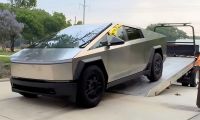



Comments
I have a 2014 Prius V with
Permalink
I have a 2014 Prius V with 175,000m miles. As second owner I purchased dealer maintained with records at 137,000 miles. It does/has not used any oil between 5000 mile oil changes. Has not (never) used any coolant since I changed all fluids a year ago. Occasionally I have an unpredictable rough cold start in the morning. Randomly occurs once every 4-6 or so months and lasts 15-20 seconds. Freaks me out! Then runs uneventfully smooth for months at 44+ mpg. I primarily use Sunoco or Shell - sometimes Mobil. I frequently alternate octane choices between 87 and 89.
Would it be prudent to replace the EGR cooler for pre-emptive head gasket preservation? I recently discovered what that occasional cold start knocking was all about. Now I'm ready to over react! Is it worth changing the EGR valve as well? Of course I will clean intake manifold as well. Is it too late to put the occasional devil back in his bottle? Thank you for providing insightful info! BobW
Prius has been under a number
Permalink
Prius has been under a number of recalls involving hybrid components and replacement. So your fluids may have already been changed.
Adding a $2,000 is not maintenence style budget but a repair because it is 1/3rd the cost of the car!
"...surprised to find that one can buy a reconditioned Prius battery for between $1500 and $2,000...." Tourquenews
Besides new tires any
Permalink
Besides new tires any suggestions to lessen wind and road noise on 2015 Prius V
We are the second owner of a
Permalink
We are the second owner of a 2014 Prius 4. About 110,000 miles and just finished
A coast to coast trip and return. The average was 45.0 mpg.
I do the oil every 6000 mile, tire rotation and high speed balance at the same time.
We changed all the fluids and new plugs before the trip. New tires.
I add a fuel injector cleaner every month.
Just the Two of us and luggage.
One driver for the long trip and no effort to conserve. It never went below 44 mpg.
Great car.
We are the second owner of a
Permalink
We are the second owner of a 2014 Prius 4. About 110,000 miles and just finished
A coast to coast trip and return. The average was 45.0 mpg.
I do the oil every 6000 mile, tire rotation and high speed balance at the same time.
We changed all the fluids and new plugs before the trip. New tires.
I add a fuel injector cleaner every month.
Just the Two of us and luggage.
One driver for the long trip and no effort to conserve. It never went below 44 mpg.
Great car.
*AN old Prius
Permalink
*AN old Prius
"Short trips in these cars
Permalink
"Short trips in these cars are murderous for fuel economy and place stress on other components like the cat converter." Please explain further, Sir. I thought city style use was the best case scenario for these vehicles.
I think the single most
Permalink
I think the single most important thing I have done is regularly clean the Mass Airflow Filter (MAF) whenever I see the mileage slipping … I’m always amazed at the results. 2007 Prius, 102,000 miles.
Hi,
Permalink
Hi,
I have a 2007 Prius with 75K miles, previously owned by the County. I assume they keep good mechanical care of the car. Battery works fine but the maximum mileage is 32.7. I believe I will keep this car for about 5 years. What do you suggest to increase mileage at a reasonable cost? Can the installers install the batter at my place in FL? Thank you
The absolute best MPG i ever…
Permalink
The absolute best MPG i ever got Out of my Prius 2 (Out of town and intown driving, rarely over 100km/h) was 3,8L/100km or 62mpg